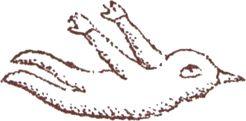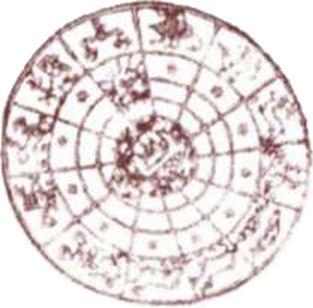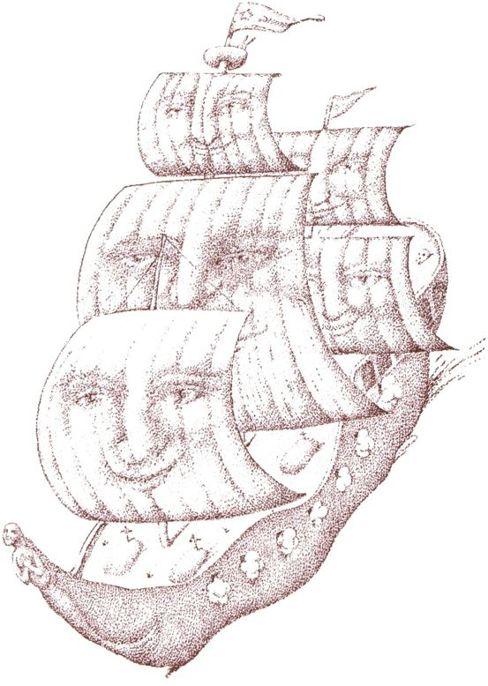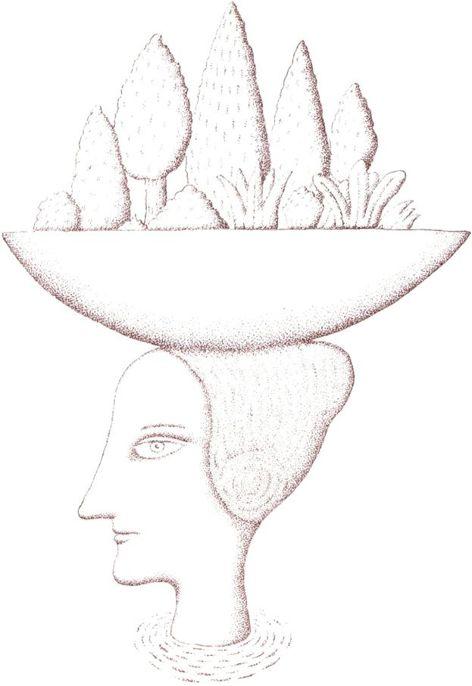The Collected Novels of José Saramago (267 page)



He had wished her sweet dreams, but he was the one who spent all night dreaming. He dreamed that his caravel was on the high seas, with the three lateen sails gloriously full, cutting a path through the waves, while he controlled the ship’s wheel and the crew rested in the shade. He couldn’t understand what these sailors were doing there, the same ones who had refused to embark with him to go in search of the unknown island, they probably regretted the crude irony with which they had treated him. He could see animals wandering
the deck too, ducks, rabbits, chickens, the usual domestic livestock, pecking at the grains of corn or nibbling on the cabbage leaves that a sailor was throwing to them, he couldn’t remember bringing them on board, but however it had happened, it was only natural they should be there, for what if the unknown island turned out to be a desert island, as had so often been the case in the past, it was best to play it safe, and we all know that opening the door to the rabbit hutch and lifting a rabbit out by the ears is always easier than having to pursue it over hill and dale. From the depths of the hold he could hear a chorus of neighing horses, lowing oxen, braying donkeys, the voices of the noble beasts so vital for carrying out heavy work, and how did they get there, how can they possibly fit into a caravel which has barely enough room for the human crew, suddenly the wind veered, the mainsail flapped and rippled, and
behind was something he hadn’t noticed before, a group of women, who, even without counting, must be as numerous as the sailors and are occupied in womanly tasks, the time had not yet come for them to occupy themselves with other things, it’s obvious that this must be a dream, no one in real life ever traveled like this. The man at the ship’s wheel looked for the cleaning woman, but couldn’t see her, Perhaps she’s in the bunk to starboard, resting after scrubbing the deck, he thought, but he was deceiving himself, because he knows perfectly well, although again he doesn’t know how he knows, that, at the last moment, she chose not to come, that she jumped onto the quay, shouting, Goodbye, goodbye, since you only have eyes for the unknown island, I’m leaving, and it wasn’t true, right now his eyes are searching for her and do not find her. At that moment, the sky clouded over and it began to rain,
and, having rained, innumerable plants began to sprout from the rows of sacks filled with earth lined up along the bulwarks, they are there not because of fears that there will not be enough soil on the unknown island, but because in that way one can gain time, the day we arrive, all we will have to do is transplant the fruit trees, sow the seeds from the miniature wheat fields ripening here, and decorate the flower beds with the flowers that will bloom from these buds. The man at the wheel asks the sailors resting on the deck if they can see any uninhabited islands yet, and they say they can see no islands at all, uninhabited or otherwise, but that they are considering disembarking on the first bit of inhabited land that appears, as long as there is a port where the ship can anchor, a tavern where they can drink and a bed to frolic in, since there’s no room to do so here, with so many people crowded together. But
what about the unknown island, asked the man at the wheel, The unknown island doesn’t exist, except as an idea in your head, the king’s geographers went to look at the maps and declared that it’s been years since there have been any unknown islands, You should have stayed in the city, then, instead of hindering my voyage, We were looking for a better place to live and decided to take advantage of your journey, You’re not sailors, We never were, I won’t be able to sail this ship all alone, You should have thought of that before asking the king to give it to you, the sea won’t teach you how to sail. Then the man at the wheel saw land in the distance and tried to sail straight past, pretending that it was the mirage of another land, an image that had traveled across space from the other side of the world, but the men who had never been sailors protested, they said that was where they wanted to disembark, This
island’s on the map, they cried, we’ll kill you if you don’t take us there. Then, of its own accord, the caravel turned its prow toward land, entered the port and drew alongside the quay, You can leave, said the man at the wheel, and they immediately all trooped off, first the women, then the men, but they did not leave alone, they took with them the ducks, the rabbits and the chickens, they took the oxen, the donkeys and the horses, and even the seagulls, one after the other, flew off, leaving the boat behind, carrying their nestlings in their beaks, something never seen before, but there’s always a first time. The man at the wheel watched this exodus in silence, he did nothing to hold back those who were abandoning him, at least they had left him the trees, the wheat and the flowers, as well as the climbing plants that were twining round the masts and festooning the ship’s sides. In the rush to leave, the sacks of earth had split
and spilled open, so that the whole deck had become a field, dug and sown, with just a little more rain there should be a good harvest. Ever since the voyage to the unknown island began, we have not seen the man at the wheel eat, that must be because he is dreaming, just dreaming, and if in his dreams he fancies a bit of bread or an apple, it would be pure invention, nothing more. The roots from the trees are now penetrating the frame of the ship itself, it won’t be long before these hoisted sails cease to be needed, the wind will just have to catch the crown of the trees and the caravel will set off for its destination. It is a forest that sails and bobs upon the waves, a forest where, quite how no one knows, birds have begun to sing, they must have been hidden somewhere and suddenly decided to emerge into the light, perhaps because the wheat field is ripening and needs harvesting. Then the man locked the ship’s wheel and went down to the field with a sickle in his hand, and when he had cut down the first few ears, he saw a shadow beside his shadow. He woke up with his arms about the cleaning woman, and her arms about him, their bodies and their bunks fused into one, so that no one can tell any more if this is port or starboard. Then, as soon as the sun had risen, the man and the woman went to paint in white letters on both sides of the prow the name that the caravel still lacked. Around midday, with the tide, The Unknown Island finally set to sea, in search of itself.


All the Names
You know the name you were given,
you do not know the name that you have.
The Book of Certainties

Above the door frame is a long, narrow plaque of enamelled metal. The black letters set against a white background say Central Registry of Births, Marriages and Deaths. Here and there the enamel is cracked and chipped. The door is an old door, the most recent layer of brown paint is beginning to peel, and the exposed grain of the wood is reminiscent of a striped pelt. There are five windows along the facade. As soon as you cross the threshold, you notice the smell of old paper. It’s true that not a day passes without new pieces of paper entering the Central Registry, papers referring to individuals of the male sex and of the female sex who continue to be born in the outside world, but the smell never changes, in the first place, because the fate of all paper, from the moment it leaves the factory, is to begin to grow old, in the second place, because on the older pieces of paper, but often on the new paper too, not a day passes without someone’s inscribing it with the causes of death and the respective places and dates, each contributing its own particular smells, not always offensive to the olfactory mucous membrane, a case in point being the aromatic effluvia which, from time to time, waft lightly through the Central Registry, and which the more discriminating noses identify as a perfume that is half rose and half chrysanthemum.
Immediately beyond the main entrance is a tall, glazed double door, through which one passes into the enormous rectangular room where the employees work, separated from the public by a long counter that seamlessly joins the two side walls, except for a movable leaf at one end that allows people in and out. The room is arranged, naturally enough, according to a hierarchy, but since, as one would expect, it is harmonious from that point of view, it is also harmonious from the geometrical point of view, which just goes to show that there is no insurmountable contradiction between aesthetics and authority. The first row of desks, parallel with the counter, is occupied by the eight clerks whose job it is to deal with the general public. Behind them is a row of four desks, again arranged symmetrically on either side of an axis that might be extended from the main entrance until it disappears into the rear, into the dark depths of the building. These desks belong to the senior clerks. Beyond the senior clerks can be seen the deputy registrars, of whom there are two. Finally, isolated and alone, as is only right and proper, sits the Registrar, who is normally addressed as “Sir.”
The distribution of tasks among the various employees follows a simple rule, which is that the duty of the members of each category is to do as much work as they possibly can, so that only a small part of that work need be passed to the category above. This means that the clerks are obliged to work without cease from morning to night, whereas the senior clerks do so only now and then, the deputies very rarely, and the Registrar almost never. The continual state of agitation of the eight clerks in the front row, who have no sooner sat down than they get up again, and are always rushing from their desk to the counter, from the counter to the card indexes, from the card indexes to the archives, tirelessly repeating this and other sequences and combinations to the blank indifference of their superiors, both immediate and distant, is an indispensable factor in understanding how it was possible, indeed shamefully easy, to commit the abuses, irregularities and forgeries that constitute the main business of this story.
